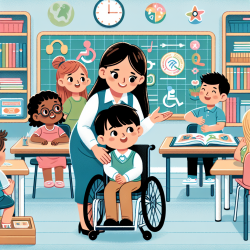As a practitioner dedicated to improving outcomes for children, staying abreast of the latest research is crucial. One significant area of interest is the role of mindfulness-based cognitive therapy (MBCT) in enhancing self-regulation among adolescents. The research article "Improving self-regulation in adolescents: current evidence for the role of mindfulness-based cognitive therapy" provides compelling evidence that MBCT can be a powerful tool for helping adolescents manage stress, anxiety, and other psychological symptoms.
Understanding MBCT
Mindfulness-based cognitive therapy combines traditional cognitive therapy with mindfulness strategies. These strategies are designed to help individuals focus on the present moment non-judgmentally. This approach can be particularly effective for adolescents, who often face unique stressors that can lead to maladaptive coping mechanisms.
Key Findings from the Research
The research by Perry-Parrish et al. (2016) highlights several key findings:
- MBCT helps adolescents improve their self-regulation skills by enhancing their ability to manage emotional responses to stress.
- Adolescents participating in MBCT programs showed reduced symptoms of depression and anxiety.
- Mindfulness practices within MBCT promote better attention regulation, which can improve academic performance and social interactions.
Practical Applications for Practitioners
As a practitioner, integrating MBCT into your therapeutic approach can yield significant benefits for your adolescent clients. Here are some practical steps to get started:
- Training and Certification: Ensure you are adequately trained in MBCT techniques. Consider pursuing certification programs that provide in-depth knowledge and practical skills.
- Program Implementation: Start with small group sessions that focus on mindfulness exercises such as body scans, mindful breathing, and meditation. Tailor these sessions to the developmental level of your clients.
- Ongoing Practice: Encourage adolescents to practice mindfulness exercises regularly. Provide them with resources such as guided meditation recordings and mindfulness apps.
- Parental Involvement: Engage parents in the process. Educate them about the benefits of mindfulness and how they can support their child's practice at home.
Encouraging Further Research
While the existing research is promising, there is still much to learn about the full potential of MBCT for adolescents. Practitioners are encouraged to stay updated with the latest studies and consider participating in research initiatives. Collaboration with academic institutions can provide valuable insights and contribute to the growing body of evidence supporting MBCT.
To read the original research paper, please follow this link: Improving self-regulation in adolescents: current evidence for the role of mindfulness-based cognitive therapy.










